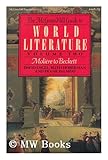My friend, David, is such a terrific writer I could not resist posting another piece he wrote. (His is the immediate prior rough fractals guest post as well).
This one in response to my describing to him my experience this past week visiting old friends who recently moved near Yosemite in north central California to start a "community". By community I mean that they bought a large enough parcel (70 acres) to build a number of small houses which they are hoping friends and neighbors will do. The current main house will then serve as a central community center. Right now they are using the main house as a Bed and Breakfast for "seekers" - that is to say anyone who would like to spend a few days in a beautiful area to meditate and contemplate (and visit Yosemite). Having moved there 18 months ago many of the locals have joined in the pursuit. When I was there there were blessings before meals and regular group meetings. On Tuesday night ten neighbors came over and after a short meditation we discussed the topic of friendship. For some, the discussion was philosophical for others, personal. We have known each other for 40 years and despite our different paths our friendship has been sustained and when we spoke of that in the group there were a few moist eyes (mine among them).
Below is David's reaction to what I described. He is always smart and has a way of writing that makes neither too much nor too little of the subject matter. I wish I could do that - I always seem to ricochet between the two.
(By way of background David is a public interest lawyer who works in health care).
"Sorry I couldn't respond sooner, but on this side of the moon I was preparing for a hearing that I did yesterday. I think I told you about it, surgeon who left his patient in the OR and, in another case, concocted his own stent and implanted it into his patient. Since I worked all last weekend preparing, I'm giving myself today off.
It's been irresistible to compare our respective experiences on the two different sides of the moon. I've been sunk to my eyes in the realm of bad motives and bad acts, the lies that cover them and the hard work it takes to reveal them. And, of course, what it does to me for that to be my work and the world I live in. Meanwhile, you're in a sunny garden world where the locals are trying to recreate Eden. To sharpen the contrast, I spent the morning watching a move called "Saint Misbehavin'," a lovely documentary about Wavy Gravy.
I have to fight against the notion that those folks out in the garden are good hearted Eloi, and I'm just a debased Morlock. In truth, I'd make a pretty bad hippie, although I'm far from immune to the attractions. After some consideration, I think the core difference between the two worlds is more scale than substance, the fact that one is large enough to require institutions and the other isn't and doesn't. I think it's as simple as this: big city, big needs (in this case, health needs), big and complex hospitals arise to serve the needs, norms and rules arise to make sure it's done right, fallible and otherwise imperfect humans contravene the rules and much ugliness ensues.
All of that is at the "Duh" level of obviousness -- so why recite it? Well, part of it is defensiveness on my part. I want to show that there is some necessity for people to do the work I do and I'm not just a dope not to live in the garden. But it also helps me understand some resistance I feel to the tendency of at least some of the Gardeners (yes, let's call them that) to feel that they have hit on something of world transforming relevance. It's not just that they're making
their world, but that they sometimes act like they are remaking
The World. I see arrogance and lack of perspective in that attitude. If the underlying values have merit -- simplicity, generosity, tolerance, balance -- as they certainly do, it's fine to emphasize them. But even we Morlocks esteem those values, but we also know that they are only part of the prescription for living in a complex world.
Now, that I've justified my existence, I'll proceed on my Morlock way."
(I sent David's response to my friends who agreed with everything he wrote. Their choices are not about saving the world or even suggesting trying to. I think it is about questioning the paradigm for themselves, their friends and their community. Artists, scientists, social activists, inventors, innovators have always been outside. Someone's gotta do that.)
PS: On further thought about this, David added a post script wondering about the tendency to think that others' lives mean something about our own. That they stand as critiques or confirmations or something to be aspired to. Often taking the form of envy.
I am not sure he is right about that. Envy seems to me to usually have a built in reservation, a bottom, bottom line belief that the choices we make are, despite our doubts and our envy of the conviction those we aspire to be like seem to hold, the best we could do. That might be denial or it might be honest but either way, there is something to the notion that we all are right where we need to be - that everyone is doing the best they can. Put another way, maybe there are no Eloi and Morlock, no "us" and "them". Not ever. Not deep down.







